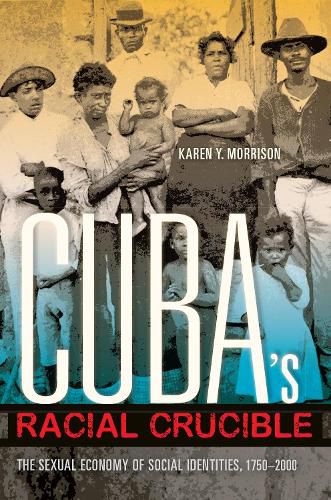Readings Newsletter
Become a Readings Member to make your shopping experience even easier.
Sign in or sign up for free!
You’re not far away from qualifying for FREE standard shipping within Australia
You’ve qualified for FREE standard shipping within Australia
The cart is loading…






Since the 19th century, assertions of a common, racially-mixed Cuban identity based on acceptance of African descent have challenged the view of Cubans as racially white. For the past two centuries, these competing views of Cuban racial identity have remained in continuous tension, while Cuban women and men make their own racially oriented choices in family formation. Cuba’s Racial Crucible explores the historical dynamics of Cuban race relations by highlighting the racially selective reproductive practices and genealogical memories associated with family formation. Karen Y. Morrison reads archival, oral-history, and literary sources to demonstrate the ideological centrality and inseparability of race,
nation, and family, in definitions of Cuban identity. Morrison analyzes the conditions that supported the social advance and decline of notions of white racial superiority, nationalist projections of racial hybridity, and pride in African descent.
$9.00 standard shipping within Australia
FREE standard shipping within Australia for orders over $100.00
Express & International shipping calculated at checkout
Since the 19th century, assertions of a common, racially-mixed Cuban identity based on acceptance of African descent have challenged the view of Cubans as racially white. For the past two centuries, these competing views of Cuban racial identity have remained in continuous tension, while Cuban women and men make their own racially oriented choices in family formation. Cuba’s Racial Crucible explores the historical dynamics of Cuban race relations by highlighting the racially selective reproductive practices and genealogical memories associated with family formation. Karen Y. Morrison reads archival, oral-history, and literary sources to demonstrate the ideological centrality and inseparability of race,
nation, and family, in definitions of Cuban identity. Morrison analyzes the conditions that supported the social advance and decline of notions of white racial superiority, nationalist projections of racial hybridity, and pride in African descent.